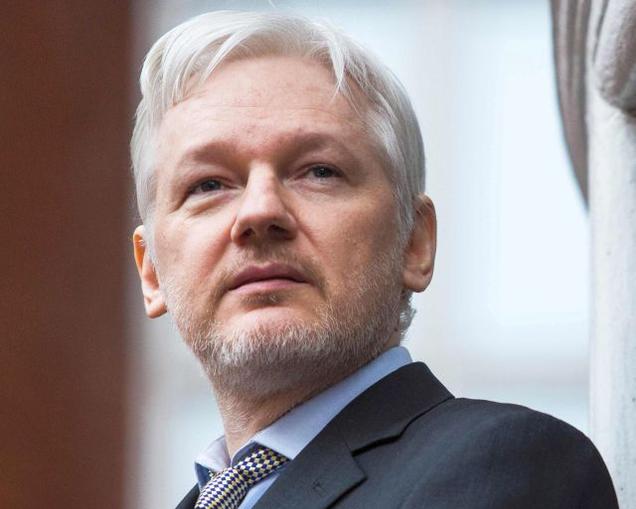
In July, WikiLeaks released nearly 20,000 Democratic National Committee e-mails suggesting that the party had conspired with Hillary Clinton’s campaign to undermine her primary opponent, Senator Bernie Sanders.
U.S. officials say they believe with a high degree of confidence that the Democratic Party material was hacked by the Russian government. That raises a question: Has WikiLeaks become a laundering machine for compromising material gathered by Russian spies? And more broadly, what precisely is the relationship between WikiLeaks Julian Assange and Russian President Vladimir Putin’s Kremlin?
Those questions are made all the more pointed by Russia’s prominent place in the U.S. presidential election campaign.
No direct ties
A New York Times examination of WikiLeaks’ activities during Mr. Assange’s years in exile has found that, whether by conviction, convenience or coincidence, WikiLeaks’ document releases have often benefited Russia, at the expense of the West.Among U.S. officials, the emerging consensus is that Mr. Assange and WikiLeaks probably have no direct ties to Russian intelligence services. But they say that, at least in the case of the Democrats’ e-mails, Moscow knew it had a sympathetic outlet in WikiLeaks.
Recent events have left some transparency advocates wondering if WikiLeaks has lost its way. There is a big difference between publishing materials from a whistleblower like Chelsea Manning and accepting information, even indirectly, from a foreign intelligence service seeking to advance its own powerful interests, said John Wonderlich, the executive director of the Sunlight Foundation, a group devoted to government transparency.
In December 2010, Mr. Assange was arrested by the London police to face questioning by the Swedes, who he feared would turn him over to the Americans. One day later, Mr. Putin appeared at a news conference. Brushing off a questioner who suggested that the diplomatic cables portrayed Russia as undemocratic, Mr. Putin used the opportunity to bash the West. It was the first of several times that Mr. Putin would take up Mr. Assange’s cause.
Soft on Kremlin?
In January 2011, the Kremlin issued Mr. Assange a visa, and one Russian official suggested that he deserved the Nobel Peace Prize. Then, in April 2012, with WikiLeaks’ funding drying up Russia Today began broadcasting a show called “The World Tomorrow” with Mr. Assange as the host. How much he or WikiLeaks was paid for the 12 episodes remains unclear.
During his time isolated in the Ecuadorean Embassy, under constant surveillance, his instinctive mistrust of the West hardened even as he became increasingly numb to the abuses of the Kremlin, which he viewed as a “bulwark against Western imperialism,” said one supporter.
Another person who collaborated with WikiLeaks in the past added: “He views everything through the prism of how he’s treated. America and Hillary Clinton have caused him trouble, and Russia never has.” — New York Times News Service
[Source:-The Hindu]



